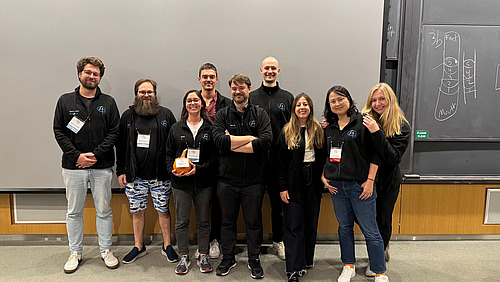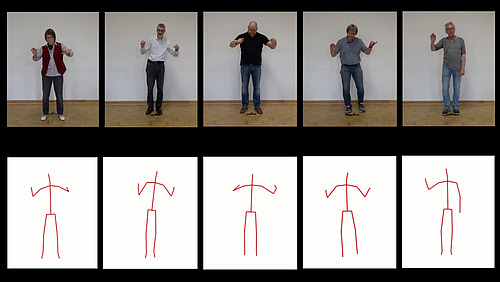The risk of suicide increases with age, and men in particular are at risk: For them, the rate is 40.5 per 100,000 over the age of 75. Dr. Miriam Hehlmann from Osnabrück University, together with Dr. Nili Solomonov from the renowned Weill Cornell Medical College in New York City, is now researching various measures to identify risks earlier and provide more targeted treatment.
"Our aim is to predict and improve treatment success," says Miriam Hehlmann. Unfortunately, only around two thirds of patients currently benefit from treatment.
In addition to regular therapy sessions and filling out questionnaires, a fitness tracker in the form of a smart ring plays a major role in the psychological psychotherapist's research project: the ring registers both the sleep phases and the activity of the test subjects. The researchers are investigating which conclusions about possible suicidal thoughts can be drawn from movement patterns and the associated social interaction even before a therapy session.
The method is based on the so-called Ecological Momentary Assessment (EMA): this involves using electronic devices such as smartphones to collect data on the behavior and experiences of people in their everyday environment.
Men in particular could benefit from the results of the project, which is funded by the Society for Psychotherapy Research: "The fact that people become tired of life in old age can be due to illness or loneliness. In this case, it is men in particular who find it difficult to cope after the death of their partner," explains Miriam Hehlmann. It is often the women who maintain social contacts and arrange appointments. Unfortunately, however, loneliness in old age and the associated suicidal thoughts are still a social taboo subject, says the researcher.
In addition to gender, socio-economic factors also play a role: the risk of suicide is higher in structurally weak urban districts and regions than in areas with higher incomes, better educational infrastructure and more stable social networks.
"The aim of the study is to develop a prediction model for the real-time detection of warning signs of suicidal tendencies in old age during psychotherapy," says the Osnabrück University scientist. This should enable suicide risks to be treated more quickly and precisely in future.
Further information for the media:
Dr. Miriam Hehlmann, Osnabrück University
Institute of Psychology
E-mail: miriam.hehlmann@uni-osnabrueck.de





